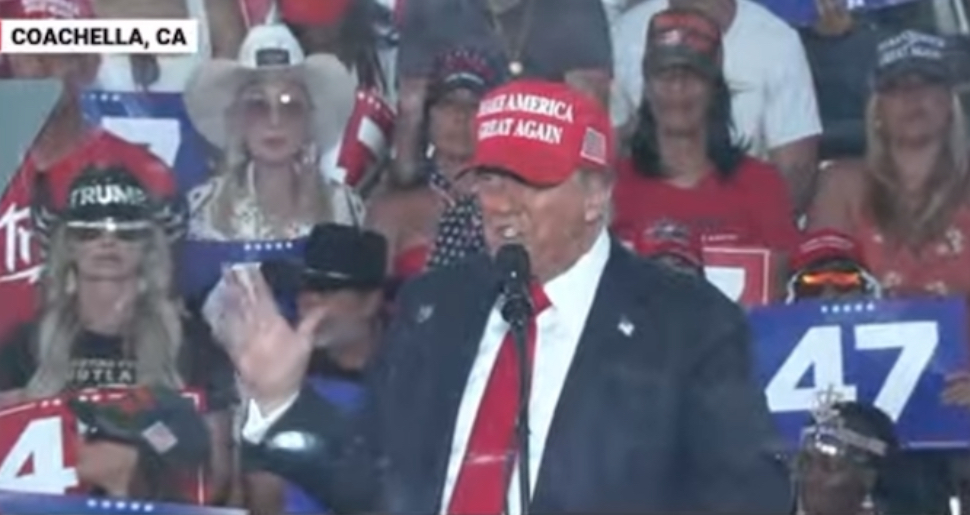On October 12, 2024, an incident occurred at a rally for former President Donald Trump in Coachella Valley, California, which raised significant security concerns. Riverside County Sheriff’s Office reported that a man named Vem Miller, aged 49 and a resident of Las Vegas, was arrested at a security checkpoint while trying to enter the rally. Miller was found in possession of illegal firearms, including a shotgun and a loaded handgun, as well as a high-capacity magazine. This event unfolded shortly before 5 p.m. PDT, and authorities responded swiftly, taking Miller into custody without incident. He was later booked into the John J. Benoit Detention Center for his offenses. Importantly, officials confirmed that this incident did not compromise the safety of former President Trump or the attendees at the rally.
Riverside County Sheriff Chad Bianco expressed grave concerns regarding Miller’s intentions, suggesting that this incident could have been an attempted assassination. According to Bianco, Miller’s presentation of fake VIP and press passes raised alarm among law enforcement officials at the checkpoint. Bianco indicated that Miller is affiliated with a right-leaning anti-government group and described his actions as part of a broader trend of threats against Trump. “We probably stopped another assassination attempt,” Bianco remarked, underlining the seriousness of the situation. This statement highlighted the ongoing risks and challenges associated with the heightened political atmosphere surrounding Trump rallies.
In addition to Miller’s arrest, authorities reported that another unidentified man was barred from entering the rally following alerts from bomb-detection police dogs. Bianco mentioned that the bomb-detecting dogs had indicated potential danger associated with this individual, prompting law enforcement to deny him entry. These incidents underscore the high level of security and vigilance required to ensure the safety of such political events, especially considering the controversial nature surrounding Trump and his rallies. The law enforcement presence was heightened in response to threats, and the quick actions of the deputies showcased their preparedness to handle potentially dangerous situations.
Miller, a registered Republican with an educational background, including a master’s degree from UCLA, has a political history; he previously ran for state assembly in Nevada in 2022. Bianco characterized him as a “sovereign citizen,” a term used to refer to individuals who often reject the authority of government laws unless they personally consent to them. This ideology can contribute to a belief in entitlement to certain privileges, leading to a disregard for laws that the sovereign citizens do not agree with, which raises additional concerns regarding unpredictable behavior.
After the arrest, Miller was released on a $5,000 bail, with a court appearance scheduled for January 2, 2025. While he is currently out on bail, the case has been drawing attention not only for its implications regarding safety at political gatherings but also for its reminder of broader societal issues connected to extremist beliefs and ideologies. The incident also prompted the Secret Service to affirm their awareness of the situation, emphasizing the continued collaboration between local law enforcement and federal agencies in managing security for prominent political figures.
As these events unfold, they reflect the complexities and dangers surrounding political discourse in the current era. Former President Trump’s rallies frequently draw both support and opposition, creating an environment where security risks can arise unexpectedly. The reported close call with potential violence serves as a reminder of the increasingly contentious political landscape and the critical need for proactive measures to ensure the safety of public figures and their supporters. The information surrounding Miller’s background, his beliefs, and the ramifications of his arrest may contribute to ongoing discussions regarding security protocols, the influence of extremist ideologies, and the implications for political engagement in the United States.

